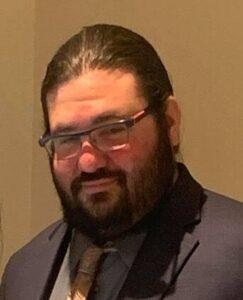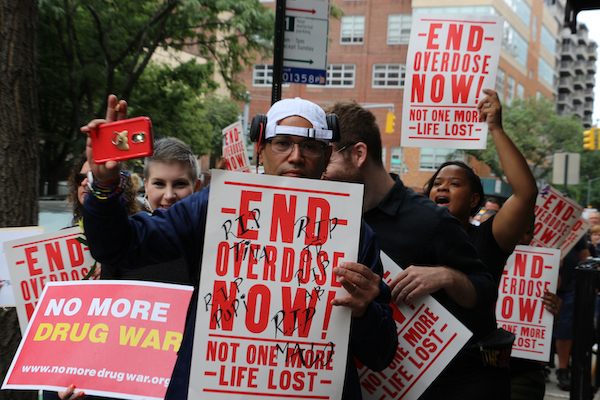My Q&A with Will Herman, LMSW, a social worker on the front lines of extending help with MAT and CBT
By Patrick McElwaine, Psy.D., LPC
October 20, 2020As a faculty member with the Beck Institute of Cognitive Behavioral Therapy, I travel to different organizations and conduct workshops on the use of cognitive behavioral therapy with trauma, addiction, depression, anxiety, suicide and other mental health concerns.

Cognitive behavioral therapy is a psycho-social intervention or type of therapy that aims to improve mental health. One of the aspects of this work that I love is meeting others in the mental health field who are doing amazing work and making such a difference in others’ lives and lifting the stigma of addiction.
As I was conducting a workshop in New York at a community mental health agency, I was fortunate enough to meet Will Herman, who is a licensed master social worker (LMSW) in a clinic that provides mental health treatment in the community. And by “in the community” I mean that Will and his team are literally on the streets in a 35-foot, purpose-built RV bringing recovery and ongoing therapy to individuals who use medication-assisted treatment (MAT). They are not a mobile response team nor an ACT team. They provide therapy and telehealth in a trailer parked in local communities.
Regardless of what someone may think about MATs, they are proven to save lives. Full stop.”—Will Herman, licensed master social worker, New York
How awesome is this? Will is quick to show off pictures of the RV, and it is undeniable from the first time you speak with him how much love, passion and dedication he has for his work.
In addition to being a fantastic therapist, Will has been in recovery for approximately 12.5 years. Will told me stories of numerous clients who use MATs safely and appropriately and have gone on to do great things, strengthen relationships and live great lives.
I had the pleasure of interviewing Will for TreatmentMagazine.com. I asked him about his experiences, sources of strength and hope, and how he helps reduce stigma and promote recovery.
Q: You are so passionate, Will. What gives you such hope and excitement?
A: I have seen MATs work for many people. I have a client who injected morphine for the first time at the age of 9. He is now in his mid-50s and has been clean for the first time in his life. He just celebrated nine months. The longest time he ever had before that was nine days, in 50-plus years.
Q: What do you want families, people with addiction and even addiction professionals to know about MAT?
A: Someone else taking MAT has no bearing on your life. Being on MATs is sober if the person who is taking them says they are. Aren’t we already divided enough? If MATs keep a person from injecting heroin (meaning: fentanyl), robbing people and stores in the community and/or spreading diseases, then why would anyone be against that?
MATs are simply tools, and the people who choose to take them have been through enough suffering without being made to feel bad about needing them. MATs allow an individual not to suffer the extreme pain of withdrawal while lessening cravings in an outpatient setting. This will make it much more likely to get them to a place where they are receptive to other therapies and live a life without illicit substances.
Being on MATs is sober if the person who is taking them says they are. Aren’t we already divided enough?”—Will Herman
Q: What would be your take-home message for TreatmentMagazine.com readers?
A: Regardless of what someone may think about MATs, they are proven to save lives. Full stop. If you feel differently, that is fine, but keep it to yourself. If you still need to comment, ask yourself, “Why do I feel I need to say this?” Everyone’s path to recovery is different. As a family member or clinician or person in recovery, we support positive change whatever that looks like or however small. Be the person with an open mind and heart. Be the person who helps a person with what they want, rather than what you want. Be the person who you need(ed) in your life. Sobriety does not exist in a vacuum. We are all in this together.
Patrick McElwaine, Psy.D., LPC, is known as “Dr. Mac” to his clients, students and colleagues. He has his own counseling practice, teaches counseling psychology at Holy Family University in Pennsylvania, is a faculty member at the Beck Institute and serves on the Bucks County National Alliance on Mental Illness (NAMI) board of trustees. His column, “Dear Recovery,” publishes regularly on TreatmentMagazine.com.
Photo by: Dane Deaner














